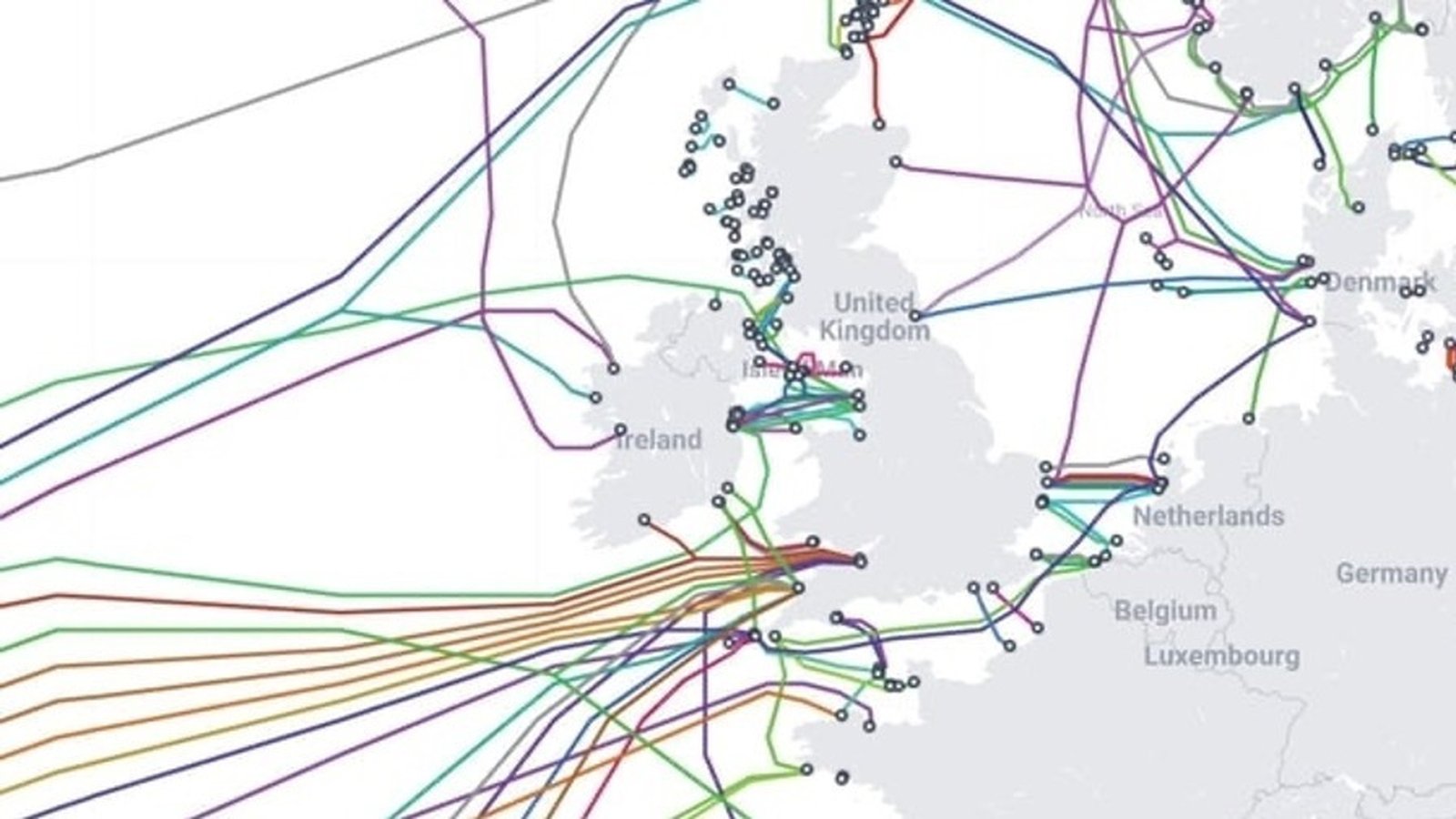Analysis: As we grow more reliant on digital infrastructure, these cables will become increasingly attractive targets to hostile nations
Undersea data cables are in the news a lot these days. Russian ships have been repeatedly observed in close proximity to cable routes off the Irish coast, as well as in other regions. Two major cables were recently cut in the Baltic sea impacting Finland, Germany, Sweden and Lithuania, prompting calls for investigations and concerns of sabotage.
While the geopolitical elements are certainly interesting and concerning, there are other reasons why these cables are important and why sabotage could have a major impact on our daily lives.
“The backbone of global communication”
Undersea data cables are the backbone of global internet and communication systems. Stretching thousands of miles across oceans, they connect continents and enable the seamless transmission of data, from emails and video calls to financial transactions and streaming services. Over 95% of international data traffic flows through these cables, making them far more integral to global connectivity than satellites.
We need your consent to load this YouTube contentWe use YouTube to manage extra content that can set cookies on your device and collect data about your activity. Please review their details and accept them to load the content.Manage Preferences
From Tech Vision, 99% of all internet traffic – from this video to your favourite WhatsApp group – runs on a hidden network of undersea cables
Modern cables are fibre optic, meaning they use light pulses to send data incredible distances almost instantly. These are preferred as they have low latency which is the time is takes for data to move from one place to another. If you have ever made an international phone call and noticed a slight lag when speaking to someone you were experiencing latency.
These cables are far faster than satellite based data transmission and have largely replaced satellite based communication in recent decades. For Ireland these cables as especially important as we are home to a large number of data centres that handle the majority of transatlantic data traffic.
Cables under attack
The severing of cables in the Baltic Sea disrupted internet and communication services across Finland, Germany, Sweden and Lithuania. Concerns related to sabotage have been widely reported, given the cables’ strategic importance in the region. Similar concerns regarding the position of Russian vessels near Irish waters, where transatlantic cables connect Europe to North America.
We need your consent to load this rte-player contentWe use rte-player to manage extra content that can set cookies on your device and collect data about your activity. Please review their details and accept them to load the content.Manage Preferences
From RTÉ’s Upfront podcast, who is responsible for protecting Ireland’s subsea cable infrastructure?
Such activities underscore the cables’ geopolitical significance. In times of conflict or tension, disrupting undersea cables could cripple communication and commerce, creating chaos without a direct military attack.
While the recent damage in the Baltic sea has had little impact due to alternative connections being available, the destruction of additional cables could have profound consequences. For individuals, it could mean disruptions in accessing digital services, delays in communication, and even interruptions in essential services like banking. For businesses, it could result in significant economic losses, especially for industries reliant on real-time data. For states, cable disruptions could escalate tensions, fuel mistrust and even spark conflict.
The recent incidents are a stark reminder of the undersea cables’ critical role in modern life. Safeguarding them is not just a matter of security, but is essential to preserving the seamless connectivity that defines modern life. Due to their paths through international waters and vast unmonitored areas, they are incredibly difficult to defend. As the world grows more reliant on digital infrastructure, it is likely that these cables will become increasingly attractive targets to hostile nations.
Follow RTÉ Brainstorm on WhatsApp and Instagram for more stories and updates
The views expressed here are those of the author and do not represent or reflect the views of RTÉ

